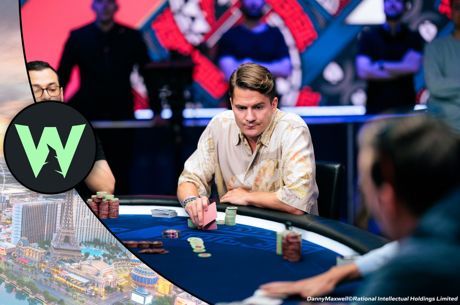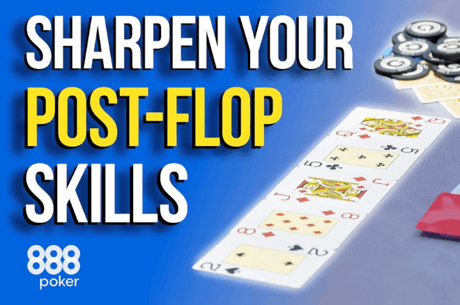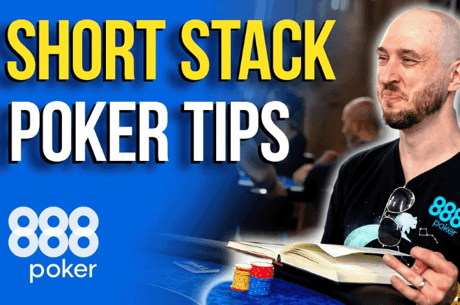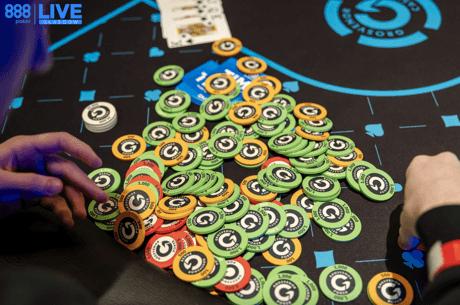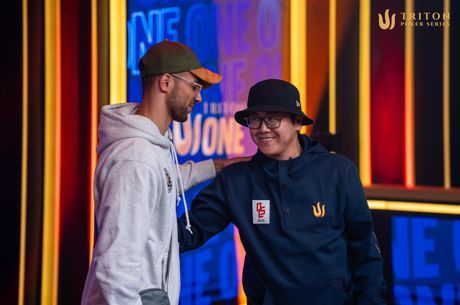When Strong Means Weak: The Chip-Grabbing Tell

One of the most reliable tells that amateur players give off is aggressively and conspicuously grabbing a stack of chips. This action comes in two forms. If they’re acting first, they grab chips as if to bet, but then check. Meanwhile if you’re the one acting first, they grab the chips before you act, as if they’re prepared to call whatever you bet.
In both cases, it’s a dependable sign of weakness. In the former case, they want you to conclude that they were about to bet, but then ruled it out in favor of a check-raise. They hope to cow you into checking behind. In the latter case, signaling a willingness to call is meant to intimidate you into not betting.
But think about it. If they really planned to check-raise, they would want to spring it on you as a surprise after feigning weakness. And, at least in a no-limit game, it’s rare that anybody decides in advance to call, without first evaluating the size of the bet to be called relative to the pot and probability of winning. So the “I’m going to call” gesture is equally phony.
Both moves are an attempt to get a free card, or to get to a free showdown. I suggest that you frustrate that wish with a healthy bet, pretty much regardless of what you’re holding.
As usual, Mike Caro had this figured out decades before I did. In his classic Caro’s Book of Poker Tells, he describes this grabbing-chips gesture and its significance.
“Among beginning and intermediate players, this is a common method of trying to prevent a bet,” Caro explains. “The reason players want to stop you from betting is because they hold weak hands with some possibility of winning. In other words, they’d like to see both hands shown down on the table. Then maybe they can salvage the pot. Reaching for chips is intended to show strength and appear threatening.”
Exactly right.
Let me give you a concrete example of this tell in action. A few years ago, I was playing a $1/$2 no-limit hold’em game at the MGM Grand in Las Vegas. I had 5♠4♠ in the big blind and called a small raise from a middle-position player.
The flop was 10x2x2x rainbow, with one of the deuces being a spade. I checked, he bet, and I called. I thought that he most likely had two big unpaired cards and whiffed this flop. My plan was that if he bet strongly on the turn, such that I believed him to have a big pocket pair, I would fold. If he bet weakly, confirming my impression of big unpaired cards, I would check-raise. And if he checked behind, I would lead out on the river if it appeared to be a card that would have missed him (i.e., not a Broadway card).
Fourth street brought the 3♠. Now I had an open-ended straight flush draw. My plan stayed the same, except that now I would call any reasonable-sized bet he might make here, even if he looked overpair-strong, because hitting either my straight or flush on the river would be marvelously disguised, and I would have a good chance of claiming his entire stack. But instead, he checked behind.
Fifth street brought the 3♣. Dang. Not only did I miss, but the double-paired board made bluffing harder, because he might call holding any ace, thinking that I might be betting with a weaker ace, and he could take half of a chopped pot. I was suddenly unsure whether the chance of my planned bluff succeeding was high enough to warrant risking it.
My dilemma was neatly solved, however, when I saw him grab a stack of chips and hold it off the felt in front of his cards, staring right at me, in one of the most flagrant “I’m gonna call you, so watch out!” moves I’ve ever seen.
His over-the-top attempt to stop me from betting had precisely the opposite effect — it let me know that it was safe to proceed.
I bet about two-thirds the pot, and he flung his cards away in disgust. I suspect he had AxKx and had no idea how far ahead of me he was. If he hadn’t gone for the intimidation move, I might well have given up after deciding that a bluff would work too infrequently to be profitable.
One important caveat to this advice: More advanced players can turn this move into a reverse tell. For example, Jean-Robert Bellande did this to perfection during the 2011 WSOP Main Event. Watch his action on the turn, coming at about the 2:15 mark in this video clip:
But against less sophisticated players, when they flash you this big ol’ stop sign, feel free to hit the gas and run right over them.
Robert Woolley lives in Asheville, NC. He spent several years in Las Vegas and chronicled his life in poker on the “Poker Grump” blog.
Get all the latest PokerNews updates on your social media outlets. Follow us on Twitter and find us on both Facebook and Google+!





